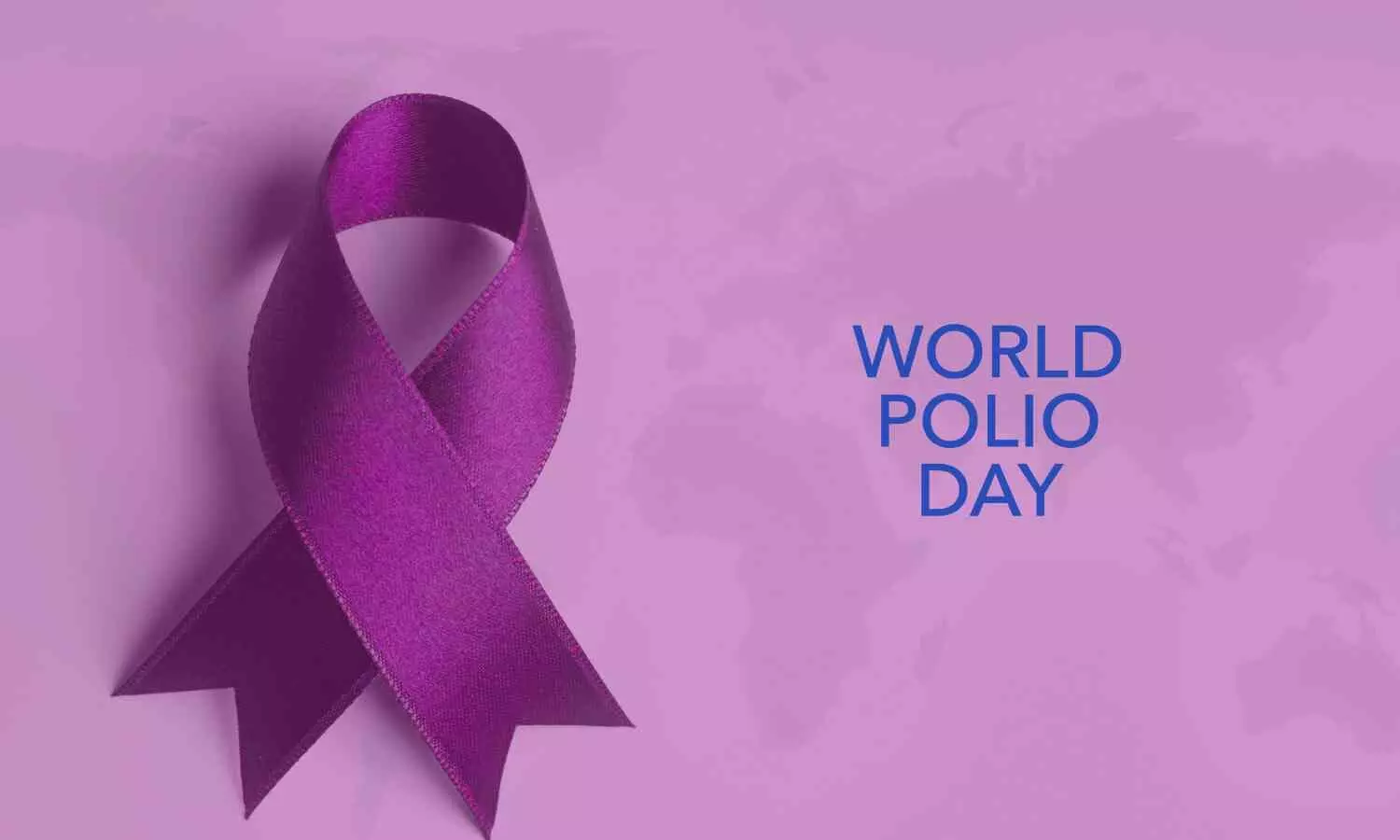Experts Call for Vigilance Despite a Decade of Polio-Free India on World Polio Day

New Delhi: As India marks a decade of being polio-free, experts emphasized the importance of identifying areas with low polio vaccination coverage to protect children from this life-threatening disease.
The call for action was made during World Polio Day, observed on October 24 each year, aimed at raising awareness about polio, a viral disease primarily affecting children under five.
India reached a significant milestone in polio eradication when the World Health Organization (WHO) declared it polio-free in 2014. However, polio still poses a potential threat, with the pace of vaccination slowing down, particularly in the north-east, as highlighted in recent National Family Health Survey data.
In August, a two-year-old child in Meghalaya's West Garo Hills district was confirmed to have a case of vaccine-derived poliovirus (VDPV), and in 2022, an immunodeficiency-related vaccine-derived poliovirus (iVDPV) specimen was detected in Kolkata, though it didn’t result in a case of polio.
Dr Rajeev Jayadevan, Chairman of the Kerala State IMA Research Cell, told IANS, “Given the high vaccination coverage in India, these detections do not result in increased cases of polio. However, there is concern that if vaccination rates decline, the polio viruses could re-enter the population and cause disease. Therefore, it is crucial to identify areas with low vaccination coverage and take corrective action.”
Deepak Kapur, Chairman of Rotary International’s India National PolioPlus Committee (RI-INPPC), stressed, “While India has been polio-free for 10 years, we must remain vigilant, especially with the virus still present in neighboring countries... With only two endemic countries remaining—Pakistan and Afghanistan—we can finally see the silver lining on the horizon, therefore, keep our focus on immunization.”
Dr Parimala V. Thirumalesh, Sr. Consultant - Neonatology & Pediatrics, Aster CMI Hospital, Bengaluru, expressed concern over challenges like poor healthcare facilities, vaccination reluctance, and socio-economic factors. “The fight is still on as some sensibilities still remain,” she told IANS.
Highlighting the need for constant innovation, Dr Ritesh Yadav, Consultant, Internal Medicine, Paras Health, Gurugram, told IANS, “We must remain vigilant as challenges persist, particularly in regions where vaccine-derived polio remains a threat. We must innovate and adapt our strategies to reach the most vulnerable populations. Empowering local health workers is vital, as they are key to building trust within communities and addressing vaccine hesitancy.”
The Global Polio Eradication Initiative (GPEI), launched in 1988, has been instrumental in reducing over 99.9% of polio cases globally. Experts stress that improving surveillance, vaccination coverage, and community involvement is crucial to eliminate polio risks and ensure a healthier future for children.
(with inputs from IANS)


